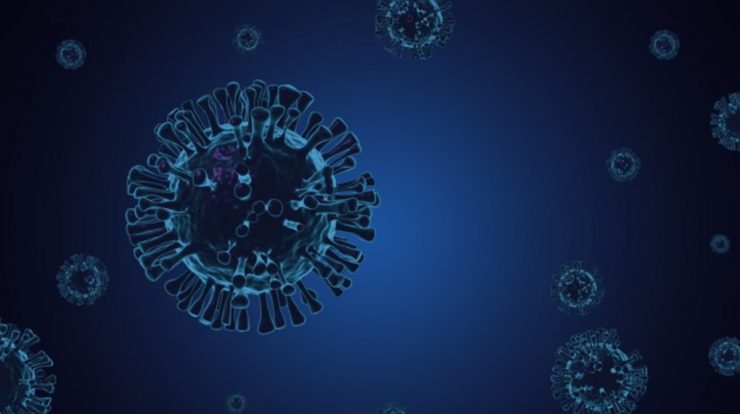

Delta variant causes difficulties in diagnosing Covid-19
Runny nose, head hurts, throat scratches: is it covid, cold, flu, allergy or sinusitis? Suspicion soon comes to those who recognize this symptom in themselves or in someone close to them. And no wonder, doctors warned. Coronaviruses, especially at the beginning of infection, are easy to confuse with these problems already known by the population, and with the arrival of the delta variant in Brazil, the uncertainty tends to be greater.
The strain, which was initially identified in India and has now spread to all continents, has altered the profile of symptoms in some patients, as reported by specialists in the United Kingdom and the United States, among other places. Added to their observations are the observations of doctors in Brazil, where the proportion of cases caused by delta has increased in surveys. If, in June, it was in 2.3% of cases in the country, in July, it actually rose to 21.5%, according to data from the Fiocruz Genomic Network.
The progression of this strain of the virus, which proved to be more transmissible, was observed, especially in Rio de Janeiro and São Paulo. In both states, most samples are still genetically sequenced from the gamma variant (also called P1 or “from Manaus”), but the share of delta has been increasing in recent weeks.
In the city of Rio, in the latest study revealed by the Ministry of Health on August 3, 45% of samples are actually from Delta. In Rio de Janeiro as a whole, the Indian ancestry accounts for 26%. In Greater São Paulo, according to data from the Adolfo Lutz Institute released at the beginning of the month, deltas appear in 23% of cases in the region.
PCR should be performed from the third day of symptoms
Rhinorrhea (runny nose, in popular language), headache and sore throat appeared frequently among patients who tested positive, noted doctors who heard the report in Rio de Janeiro and São Paulo. On the other hand, loss of smell, loss of taste, cough, and shortness of breath were no longer reported on visits in recent weeks.
“This variant is very similar to influenza-like symptoms, so we always have to test the patient. From the third day of symptoms, we already recommend a RT-PCR test, to confirm or rule out this possibility” says Antonino Eduardo Neto, Medical Director of Badim Hospital in Rio de Janeiro. “It’s already clear that some patients, who you wouldn’t think hard about last year about Covid, have to think about now,” he adds.
The shift in the onset symptoms profile follows what has been seen before on the front lines of countries where Delta has caused an explosion in cases. Therefore, it has been interpreted here as a practical effect of introducing the variant in Brazil, although there are no comprehensive studies classifying these symptoms and it is not possible to assess the strain experienced by each patient. In the country, identification is made only by sampling, for monitoring by health surveillance.
In Rio, the situation is also seen at São Lucas Copacabana Hospital, says pulmonologist Alexandre Pinto Cardoso.
“Sinusitis symptoms are more frequent and more severe than before,” he adds. “But when it progresses to more severe symptoms, the shape is exactly the same,” he asserts.
Difficulty breathing, low oxygen saturation and coagulation, among other serious problems, continue to appear in people with greater frailty.
In practice, having more flu-like or cold symptoms early in the illness isn’t a challenge to treating Covid, which remains the same, doctors say, but it does reinforce the need for certain protocols.
At the Paulista de Otorhinolaryngology Hospital, for example, reception teams have already received instructions to be aware of Delta symptoms since the patient arrives at the door, and to avoid during the examination that they mingle with others who do not have these symptoms, says Arnaldo Tameso, an ear, nose and throat specialist.
Outside of the hospital environment, transmission control becomes an even bigger problem. In the face of inconveniences that do not light up such a strong alert, as it is considered vulgar, is the tendency for people to spread more during infection, and thus the spread of the virus. Therefore, testing should be strengthened at this time.
“Because we are facing a highly contagious variant, the faster this identification is, the better it is to prevent and reduce spread,” warns Isabella Albuquerque, an infection specialist and coordinator of the infection control service at São Vicente de Paulo Hospital, in Rio, where patient complaints have also changed at the beginning of the year. cases.
In recent weeks, from mid-July until now, it has been common for patients to be surprised to ask for a Covid test, and then even more so when they come across a positive result, notes ENT doctor Antonio Celso Avila da Costa, partner at Spot Clinics, in São Paulo. .
“They come into the office saying, ‘I have a sinus infection or a cold, that’s the usual thing. “Some even want to retake the test because they don’t believe [no resultado]“In the perception of many people, to be with Covid you have to lose your sense of smell, taste, cough and shortness of breath,” he says.
Changing these perceptions is a new challenge, as well as reinforcing the need to withdraw from mild symptoms.
“We have to be more liberal to keep people away from work and activities,” concludes Joao Prats, an infectious disease specialist at Beneficência Portugaluesa in São Paulo.
